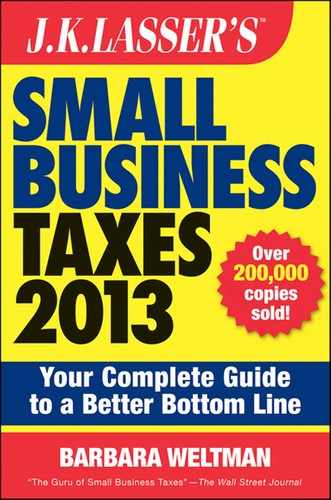Special Business Uses of a Home
There are 2 exceptions to the exclusive use requirement: day-care facilities and storage space. If either of these exceptions apply, you can deduct your home office expenses even though the space is also used for personal purposes.
Day-Care Facilities
If you use all or part of your home on a regular basis as a facility to provide day-care services, you may claim home office deductions if you meet certain tests.
- You must provide day care for children, elderly persons (age 65 and older), or persons who are physically or mentally unable to care for themselves.
- You must have a license, certificate, registration, or other approval as a day-care center or family or group day-care home under your state law. You can claim home office expenses if you have applied for approval and are awaiting it. You cannot claim home office expenses if your application has been rejected or your approval revoked.
Note: Special rules for meal costs of day-care providers are covered in Chapter 22.
CALCULATING YOUR HOME OFFICE DEDUCTION
If you use a portion of your home exclusively for day-care services (e.g., a basement playroom), you can deduct your expenses for any other type of business use of a home. If, however, you use a portion of your home for day-care services but also use it for personal purposes (e.g., your living room), you must follow special allocation rules to determine your home office deduction. You must compare the business use of the space with the total use of the space. There are 2 methods for making this comparison:
Then this percentage is applied to the business percentage of total space.
If meals are provided as part of the day-care services, the cost of the meals is not included in a home office deduction. It is a separate expense. In calculating the deductible portion of the meal costs, 100% of the costs to day-care recipients is deductible. If you also provide meals to employees, only 50% of the cost of meals for them is deductible. No percentage of the cost of meals consumed by you or your family is deductible. If you receive reimbursements under the Child and Adult Food Care Program under the U.S. Department of Agriculture, you must include in income any reimbursements in excess of your expenses for eligible children.
Storage
If space is used on a regular basis for the storage of your inventory or sample products, you can deduct home office expenses even though you also use the space for personal purposes and thus fail the exclusive use test. The storage space that is deductible is only the actual space used. For example, if a portion of a basement is used for storage, only the expenses related to that portion are deductible even if the rest of the basement is not used for other purposes.
Expenses of storage space are deductible even though the exclusive use test is not satisfied if:
- The home is the fixed location of the business activity (you run the business from home).
- The business activity is selling goods wholesale or retail.
- The space is used as a separately identifiable space suitable for storage.
Bed and Breakfasts
Typically, owners of a bed and breakfast live at their inn, using a portion of the premises as their personal residence. There is no exception to the exclusive use rule for bed and breakfasts as there is for day care and storage. The Tax Court has determined that no deduction can be taken for the portion of the inn used for both personal and business purposes (e.g., lobby, kitchen, and laundry room). A deduction is limited only to areas used exclusively for business (e.g., guest rooms).
